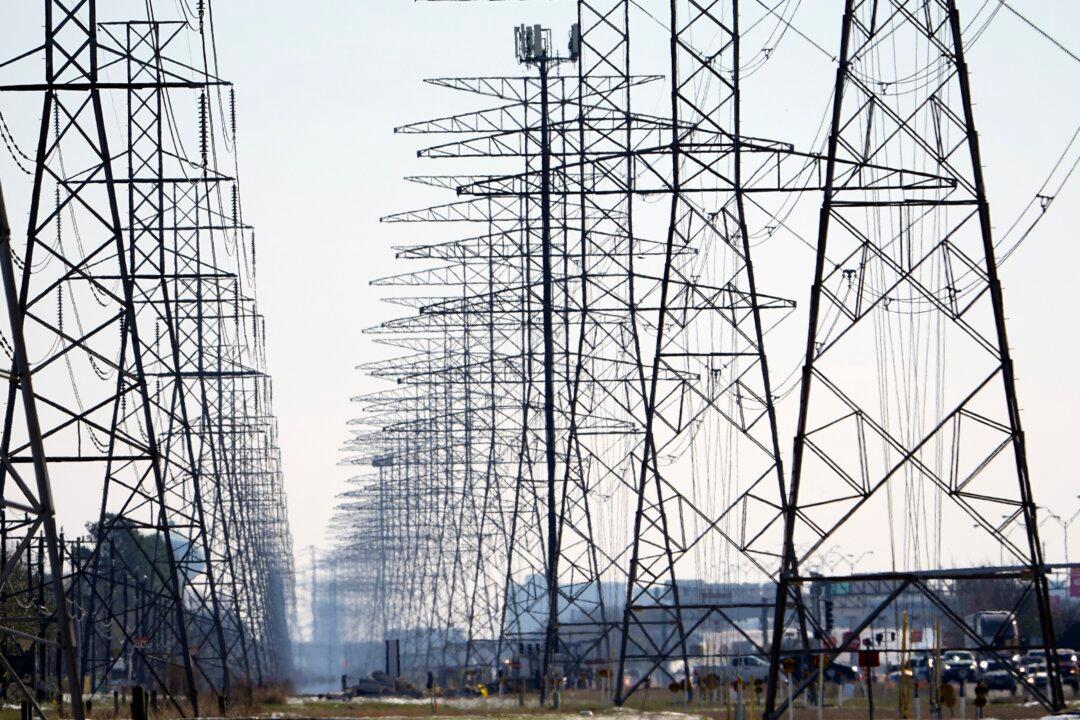A group that manages a large percentage of Texas’s power supply issued an alert ahead of a forecasted cold front this weekend that is expected to send temperatures plunging.
The Electric Reliability Council of Texas, known as ERCOT, sent a warning for Jan. 15 to Jan. 17, saying that “extreme cold weather” and elevated “electrical demand” could lower reserves across Texas. ERCOT manages about 90 percent of Texas’ power grid.





